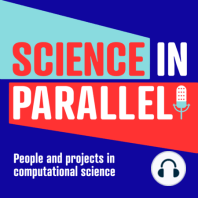34 min listen
Season 1, Episode 6 -- Aurora Pribram-Jones
ratings:
Length:
28 minutes
Released:
Oct 27, 2021
Format:
Podcast episode
Description
Aurora Pribram-Jones works on hot, dense electrons – simulating extreme chemistry that can happen within giant planets like Jupiter or nuclear fusion experiments. Aurora’s career included many initial detours on the way to science, but the flexibility of community college classes and a job at a technical bookstore paved their path toward research. Now a member of the chemistry faculty at the University of California, Merced, Aurora finds purpose in teaching and mentoring students and supporting the whole scientist, especially those from underrepresented and marginalized communities. Aurora completed a Ph.D. at the University of California, Irvine, and was a DOE CSGF recipient from 2011 to 2015. They carried out postdoctoral research at the University of California, Berkeley, and at Lawrence Livermore National Laboratory, the latter supported by a Lawrence Postdoctoral Fellowship. Aurora received the Frederick A. Howes Scholar Award in Computational Science in 2016.
Released:
Oct 27, 2021
Format:
Podcast episode
Titles in the series (22)
Season One, Episode Two -- Artificial Intelligence and Climate Change: Do the Work and Meet the People by Science in Parallel
